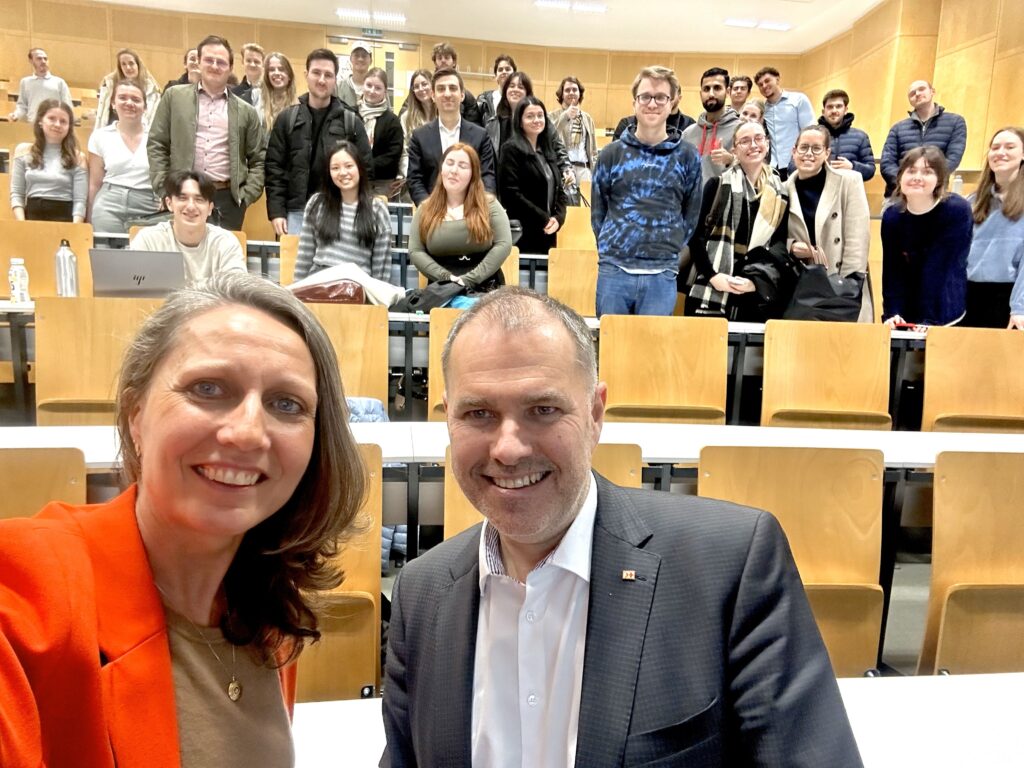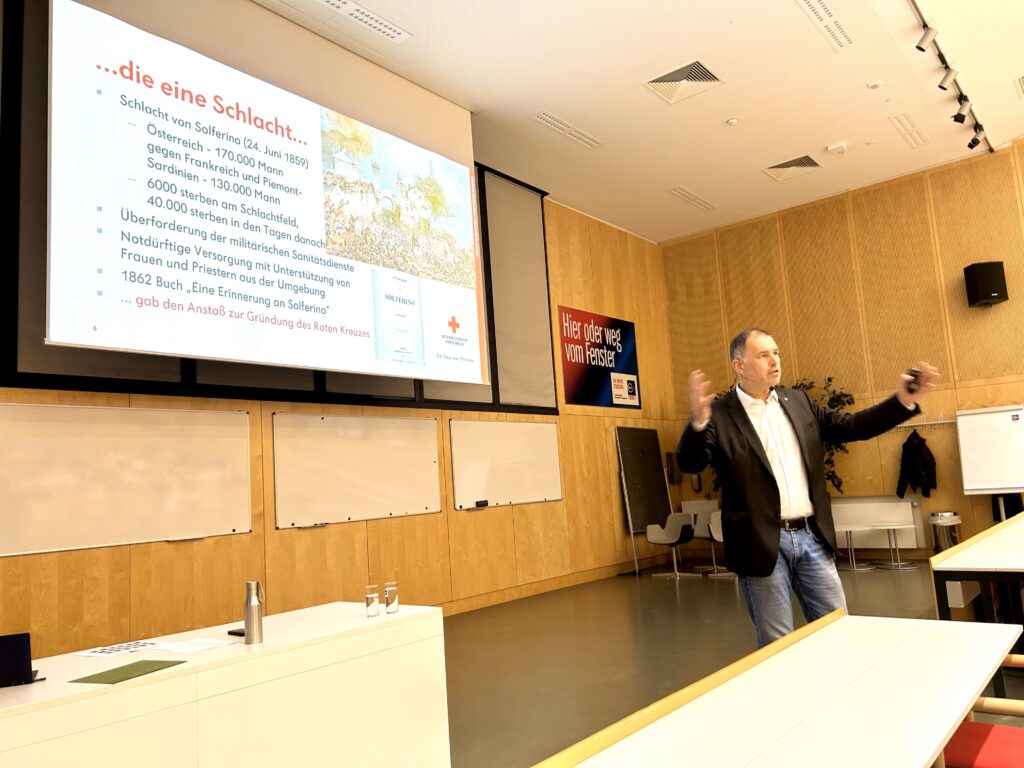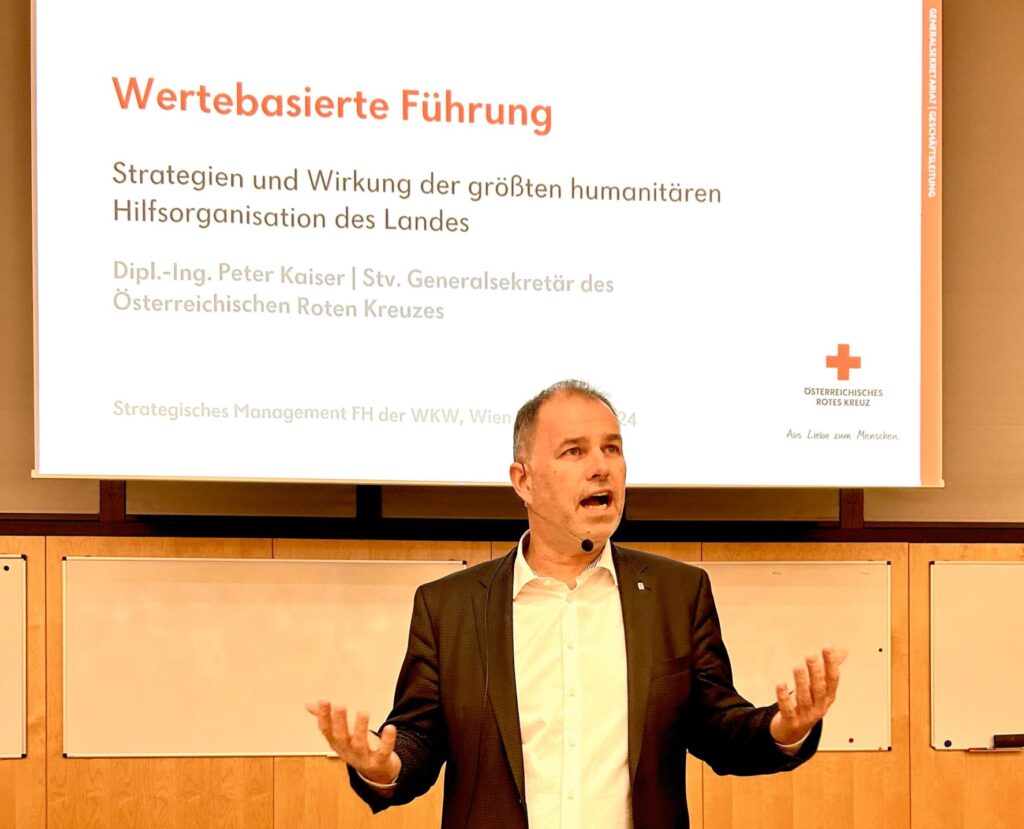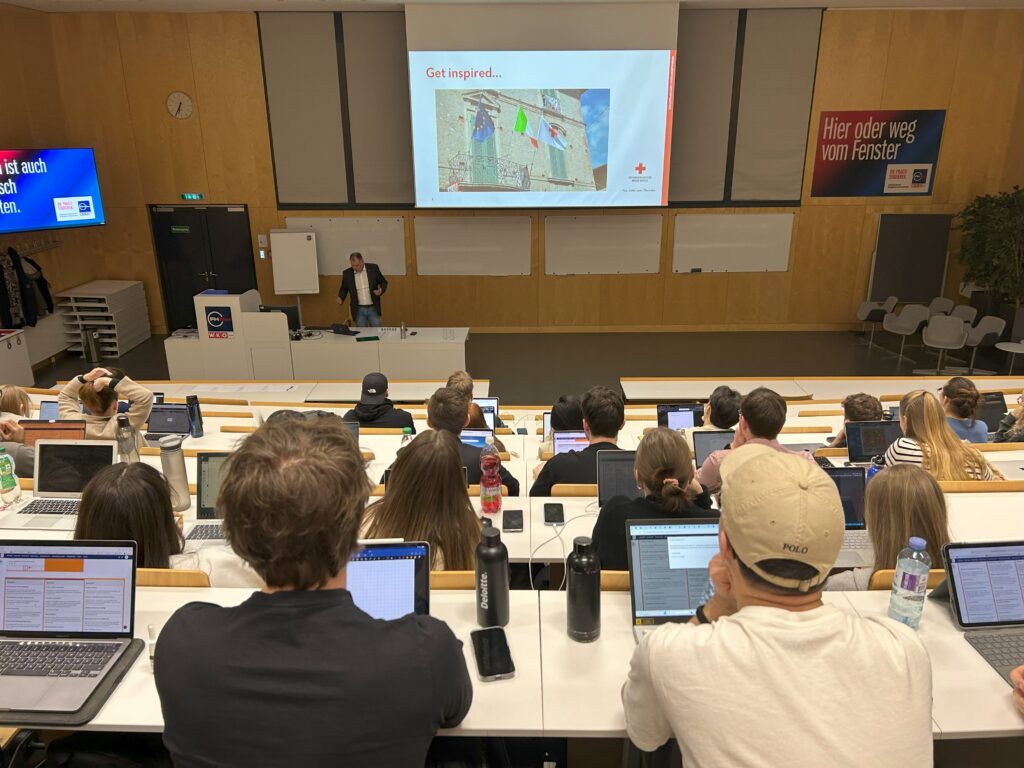“Values are non-negotiable!” says Peter Kaiser, Deputy Secretary General of the Austrian Red Cross. He presented the strategy and impact of the country’s largest humanitarian aid organization to interested students.
With his guiding principle, Peter Kaiser inspired the students of the Bachelor’s program in Management & Entrepreneurship as part of the lecture series “Strategic Management” for the topic “Value-based leadership at the Austrian Red Cross”.
Peter Kaiser has been Deputy Secretary General of the ÖRK since 2019 and has known Austria’s largest humanitarian aid organization for 25 years: Around 75,000 volunteers get involved out of conviction – without pay. Over 1 million people donate regularly.
What motivates so many people to put themselves at the service of society? How is it possible to build – and manage – an organization with so many volunteers and full-time staff based on shared values?
The importance of core values in humanitarian work
Peter Kaiser took the students on a journey through the history of the Red Cross, starting with the Battle of Solferino, through the vision of founder Jean Henry Dunant (1864) to the seven principles: Humanity, Impartiality, Neutrality, Independence, Voluntariness, Unity and Universality.
These principles are the foundation for the actions and strategic orientation of the ÖRK. They make it clear why trust, leading by example and shared values are essential in an organization with so many volunteers.
Challenges in a BANI world – values as a guide
Peter Kaiser also shed light on the current challenges of our world – characterized by brittle, anxious, non-linearity and incomprehensibility (BANI). This shows that value-based leadership is not a luxury, but a necessity. It creates stability and orientation in uncertain times.
Lessons learned by the students:
- Leadership at the Red Cross does not work through instructions, but through trust, leading by example and shared values. Especially in an organization with so many volunteers, it becomes clear: “Only those who are convinced can convince others.”
- “Leadership begins in the little things” – in respectful cooperation, in decisions that are not only economic but also human.
The lecture was particularly valuable for prospective managers, as it showed how essential lived values are for sustainable leadership success – even outside of traditional corporate contexts.
Thanks to Peter Kaiser for the insights and inspiration, to the students for their interest and the many questions and to Martina Zöbl for the organization!



